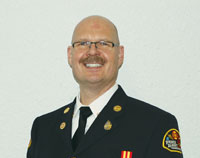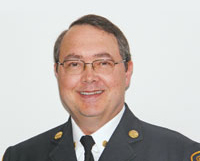
Features
Leadership
Leadership Forum: May 2013
We have written several columns related to succession planning and mentoring, but we fear that some chief officers still don’t understand or embrace what we are trying to promote (and practise) in our departments,
April 23, 2013
By Les Karpluk and Lyle Quan
We have written several columns related to succession planning and mentoring, but we fear that some chief officers still don’t understand or embrace what we are trying to promote (and practise) in our departments, which is the concept of passing the leadership torch to up-and-coming leaders. Whether or not we want to accept the fact that the fire service is not doing a great job of succession planning, the day will come when we retire, and today we must decide what we want our legacy to be.
The fire service is known as an organization whose members pride themselves in the service they provide for their communities, yet when it comes to creating an internal climate of support for developing leaders, there are still some bumps in the road; indeed, the road to leadership/management is narrow and few choose it. In the career departments, is this a union-versus-management issue or it is because we, the managers, don’t want to let go of the reins because this could be interpreted as a sign of weakness? In the volunteer departments, is availability of time, or lack thereof, an excuse for failing to plan for the future?
As leaders, we must understand that before we can pass the torch, we must work with those in our organization who have the demonstrated talent and desire to continue leading the organization. Call this mentoring, succession planning, leading by example or whatever the buzzword is for the day; it comes down to nurturing the raw talent we see in our staff and giving them the tools and opportunities to hone those skills. A great way to nurture that talent is to assign projects that challenge future leaders, forcing them outside of their comfort zones and leading them to new levels of personal development. This isn’t complicated and we do it when we introduce new training topics, so we are already familiar with the concept of challenging our people to grow.
Another great way to accomplish this is by letting go of the reins and becoming a servant leader. Servant leadership is a very powerful leadership tool that helps to promote the transitioning of power and positions. There are numerous definitions of a servant leader, but to keep things simple, we define servant leaders as those who strive to serve the needs of individuals and the organization by putting their needs behind those of the organization and placing those of staff and the organization first. Servant leaders also listen carefully to others and help to build the community or organization by creating a vision that everyone can share and support because they feel they have a vested interest in its outcome – they have ownership.
If we as leaders are unable to demonstrate and share both a long- and short-term vision with our staff, then how can we expect them to want to join us and help lead the way? Sometimes, the easiest thing we can do as leaders is look back to our formative years as fledgling firefighters and future officers, and critically analyze what made us pursue the position that we presently occupy. Was it money, was it having greater control over the department’s operations or was it the opportunity to make a difference?
It is up to us to ensure that the right people are placed in the right positions to secure the fire department’s future and to ensure that the department continues to meet the needs of our staff and the communities we serve. We have prided ourselves on writing about topics that are relative to our profession and there is no doubt that preparing our future leaders is a fundamental issue facing the fire service.
So, our challenge to you chief officers is this: do something. It doesn’t matter how big or small – all that matters is that you move forward with some kind of initiative in this leadership/mentoring endeavour. Focus on leaving the department better than you found it. Yet, at the same time, understand that you are not alone in this challenge; you have your network of friends and fire chiefs who have walked down this path and can help guide and support you. Most importantly, if you look hard enough, you will discover that you have talented people within your organization who are simply waiting for the opportunity to demonstrate their ability to lead.
Do not ignore the importance of this subject; otherwise, your legacy may not be what you envisioned. Don’t be the person who is applauded for leaving the room; be the person who earns the applause for doing what is right before leaving the room – and that should be passing the leadership torch to the next generation.

|
|
 |
Les Karpluk is the fire chief of the Prince Albert Fire Department in Saskatchewan.
Lyle Quan is the fire chief of Waterloo Fire Rescue in Ontario. Both are
graduates of the Lakeland College Bachelor of Business in Emergency
Services program and Dalhousie University’s Fire Service Leadership and
Administration program. Contact Les at l.karpluk@sasktel.net and follow
him on twitter at @GenesisLes. Contact Lyle at lyle.quan@waterloo.ca and
follow him on twitter at @LyleQuan.
Print this page